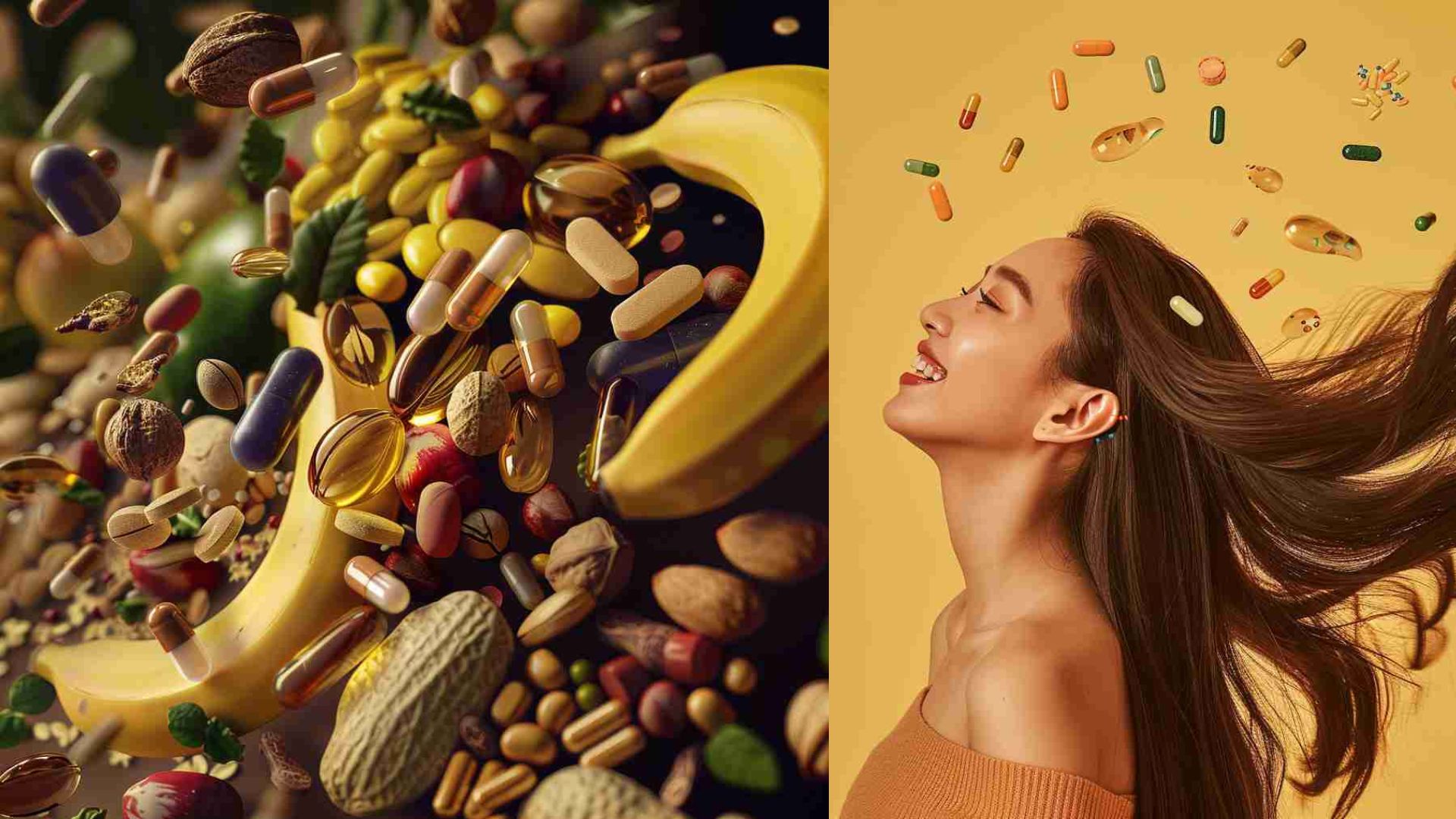Hair loss is a common concern for many women, impacting their confidence and self-esteem. While various factors can contribute to hair thinning, including genetics, hormonal changes, and stress, a growing body of research highlights the importance of nutrition, particularly B vitamins, in promoting hair health. This article delves into how B vitamins can help treat hair loss in women, outlining five key treatments, their benefits, potential side effects, and practical usage tips.
Understanding B Vitamins and Their Role in Hair Health
B vitamins are a group of water-soluble vitamins that play essential roles in maintaining various bodily functions. The key B vitamins associated with hair health include:
- Vitamin B1 (Thiamine): Supports circulation and nutrient delivery to hair follicles.
- Vitamin B2 (Riboflavin): Aids in cellular function and metabolism.
- Vitamin B3 (Niacin): Improves blood circulation, contributing to healthy hair growth.
- Vitamin B5 (Pantothenic Acid): Vital for hormone production and stress management.
- Vitamin B6 (Pyridoxine): Influences hormone balance, which can affect hair growth.
- Vitamin B7 (Biotin): Often hailed as the “hair vitamin,” biotin is crucial for keratin production.
- Vitamin B12 (Cobalamin): Essential for red blood cell formation and maintaining a healthy nervous system.
How B Vitamins Help with Hair Loss
B vitamins contribute to hair health in several ways:
- Boosting Metabolism: They aid in the metabolism of nutrients, which is vital for producing energy necessary for hair growth.
- Enhancing Circulation: Improved blood flow to the scalp can nourish hair follicles, promoting growth.
- Strengthening Hair: B vitamins can strengthen hair shafts, reducing breakage and thinning.
- Balancing Hormones: By regulating hormones, B vitamins can help mitigate hair loss related to hormonal imbalances.
Five B Vitamin Treatments for Hair Loss
1. Biotin Supplements
How to Use: Biotin supplements are widely available in various forms, including tablets, capsules, and gummies. The recommended dosage ranges from 30 to 100 micrograms per day, depending on individual needs. It’s advisable to consult with a healthcare professional before starting any new supplement regimen.
Benefits:
- Promotes keratin production, which strengthens hair.
- May improve hair thickness and reduce hair fall.
Side Effects: Biotin is generally safe, but high doses can lead to skin rashes or digestive upset in some individuals.
2. Niacin (Vitamin B3) Capsules
How to Use: Niacin supplements can be taken in doses of 14-16 mg daily. For optimal absorption, it’s best to take them with food.
Benefits:
- Enhances blood circulation to the scalp.
- Helps repair and build tissue, essential for healthy hair follicles.
Side Effects: High doses can cause flushing, itching, or gastrointestinal issues.
3. Pantothenic Acid (Vitamin B5) Rich Foods
How to Use: Incorporate foods rich in B5 into your diet, such as avocados, eggs, mushrooms, and whole grains. Aim for at least 5 mg per day through dietary sources.
Benefits:
- Supports adrenal function, helping the body cope with stress.
- Improves overall hair health and resilience.
Side Effects: Pantothenic acid is usually well-tolerated, but excessive amounts may lead to mild diarrhea or stomach upset.
4. Vitamin B6 Supplements
How to Use: B6 supplements can be taken in doses of 1.3 to 2.0 mg daily. Consider a B-complex supplement for balanced intake.
Benefits:
- Regulates hormonal levels that may affect hair loss.
- Supports immune function, which is crucial for maintaining scalp health.
Side Effects: Prolonged high doses (over 100 mg) can lead to nerve damage, so moderation is essential.
5. B12 Shots or Sublingual Tablets
How to Use: Vitamin B12 can be administered through injections or taken as sublingual tablets. The recommended daily allowance is 2.4 micrograms, but higher doses may be required for those with absorption issues.
Benefits:
- Supports red blood cell formation, ensuring adequate oxygen supply to hair follicles.
- Boosts energy levels, reducing stress that can contribute to hair loss.
Side Effects: B12 is generally safe; however, some may experience mild reactions to injections, including soreness or swelling at the injection site.
Conclusion
B vitamins play a crucial role in maintaining healthy hair and may serve as effective natural treatments for hair loss in women. By incorporating biotin, niacin, pantothenic acid, B6, and B12 into your diet or supplement regimen, you can enhance hair growth, strength, and overall health.
A Word of Caution
While B vitamins can offer numerous benefits, it’s essential to approach supplementation with care. Always consult a healthcare professional before beginning any new treatment, especially if you have underlying health conditions or are taking medications. With the right approach, B vitamins can be a powerful ally in your journey to restore and maintain healthy hair.
Please share this Vitamin E Oil Natural Treatment for Hair Loss Female with your friends and do a comment below about your feedback.
We will meet you on next article.
Until you can read, Avocado Oil Natural Treatment for Hair Loss Female
